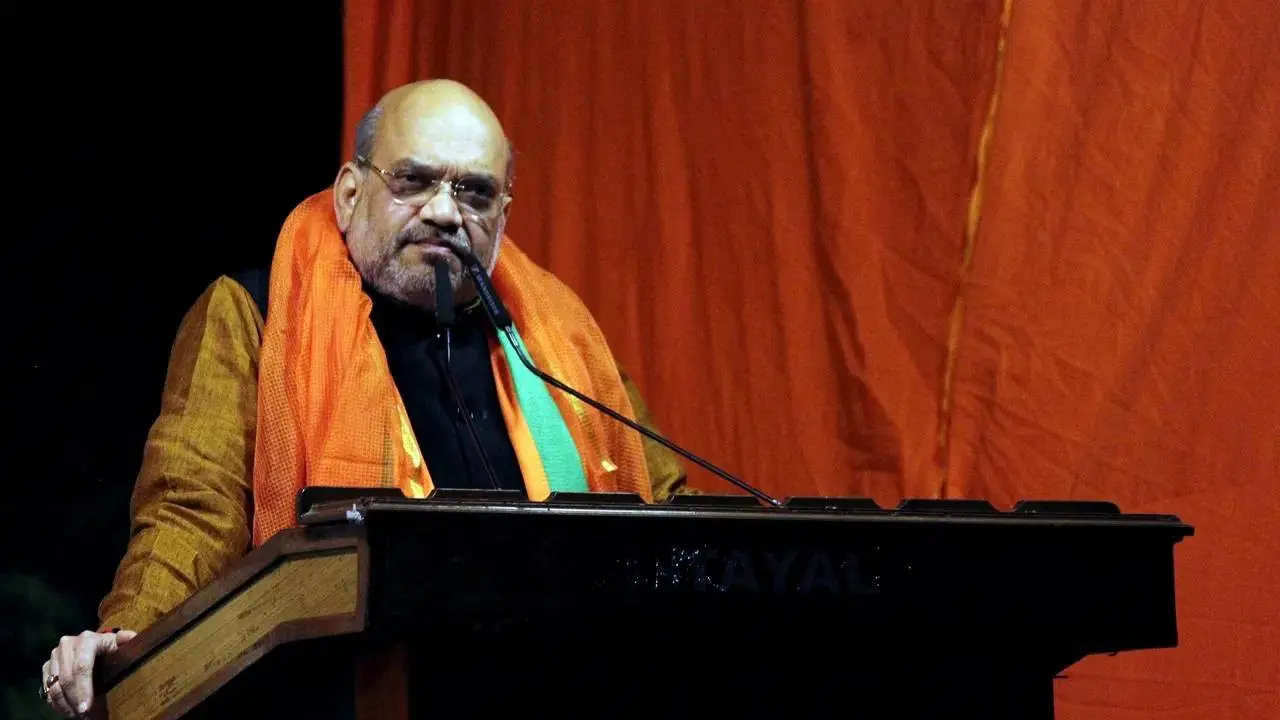
HM
National News: Union Home Minister Amit Shah has shared his retirement vision, revealing a deeply personal choice. He plans to devote his post-political life to the study of Vedas, Upanishads, and natural farming. Speaking at ‘Sahakar Samvad’, Shah emphasized that natural farming isn’t just a traditional method—it’s a scientific approach with measurable benefits. His statement signals a shift from governance to grounded spirituality, a path rarely chosen by senior political leaders. It also highlights his evolving priorities beyond power. For someone who's been at the epicenter of national security, this transition is both surprising and thoughtful.
Amit Shah, while reflecting on his ministerial roles, made a striking observation. He recalled how many congratulated him on handling the Home Ministry, calling it a “powerful” department. But Shah feels otherwise. According to him, the Ministry of Cooperation is more impactful. It directly touches the lives of farmers, poor families, and rural India. Shah said when he was assigned the Cooperation portfolio, he felt it outweighed even the Home Ministry in terms of grassroots relevance. This comment hints at how he perceives true nation-building—starting from villages upward.
During the same address, Shah paid tribute to Tribhuvan Bhai Patel—a name largely unknown nationally. Shah said Patel was the original thinker behind Gujarat’s cooperative revolution. His vision now enables individuals in cooperative sectors to earn over ₹1 crore annually. Despite his vast contributions, Patel never sought personal fame. When Shah mentioned his name in Parliament, many asked, “Who is he?” That, Shah felt, was a tragedy. The man who transformed rural economics never sought the limelight or personal credit.
Shah revealed that when the decision was made to name a university after Tribhuvan Bhai Patel, Congress opposed it strongly. But despite the political resistance, Shah stood firm. He recalled confronting the opposition in Parliament, insisting that Patel’s contribution deserved national honor. Eventually, the university was named after him. Shah emphasized that every woman in Gujarat today blesses Patel for empowering them financially. Honoring him wasn’t just a tribute—it was justice. His name now stands immortalized in educational history.
Recalling his early days in Banaskantha, Gujarat, Shah painted a vivid picture of struggle. “When I was born, we used to get water only once a week,” he said. Back then, Banaskantha and Kutch regions faced severe water shortages. Today, the same region witnesses annual income of ₹1 crore per family—from dairy cooperatives. The transformation, Shah stressed, came through cooperation-led development. And this success is rooted in the system envisioned by Patel. It's a remarkable shift from scarcity to prosperity through rural enterprise.
Highlighting the role of women, Shah proudly stated that Gujarat’s women are now leading ₹80,000 crore worth of cooperative businesses. This isn’t just about income, but empowerment. These women are stakeholders, decision-makers, and economic contributors. It showcases how inclusive models can uplift families and reshape societies. Shah credited cooperative structures for giving women financial freedom and social respect. This impact, he believes, outshines many urban policies. And at the heart of it is the legacy of people like Tribhuvan Patel.
Summarizing his future plans, Shah reiterated his desire to detach from political life post-retirement. His focus will be on inner growth, ancient knowledge, and sustainable agriculture. He believes that Vedas and Upanishads hold answers to today’s chaos. Natural farming, he said, is a tool to reconnect with Earth and health. Shah’s pivot from politics to philosophy signals a rare and commendable turn. It’s not just an exit plan—it’s a life purpose. His message: public service doesn’t end with politics—it evolves.





Copyright © 2026 Top Indian News
